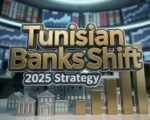Commercial banks in Nigeria are facing mounting pressure as a surge in cash demand from government entities, businesses, and consumers tightens liquidity, raising fears of financial strain and tighter credit access. Despite government efforts to inject funds, many banks are scrambling to manage their cash reserves.
Banks on High Alert Amid Growing Cash Withdrawals
A significant rise in currency withdrawals across Nigeria is stretching banks’ liquidity to near-breaking points. Sources within the banking sector reveal that institutions are grappling with the combined weight of government disbursements, corporate tax payments, and consumer demand ahead of expected inflationary spikes.
One mid-sized lender disclosed, under anonymity, that it has already triggered contingency liquidity plans and imposed restrictions on large corporate withdrawals. The strain is felt more acutely by smaller banks, which lack the buffer that larger financial institutions enjoy.
The government’s move to inject liquidity through matured Treasury bills and Open Market Operations (OMO) last week, amounting to over N850 billion, has failed to sufficiently relieve pressure. This shortfall is worsened by the Debt Management Office’s OMO sales totaling a staggering N2.1 trillion, which mopped up liquidity, effectively draining cash from the banking system.

Nigerian money markets are responding swiftly: The Nigerian Interbank Offered Rate (NIBOR) jumped sharply, with the overnight rate hitting 26.92%, while rates for one, three, and six months climbed above 27%, signaling a costlier borrowing environment for banks.
Impact on Credit and the Wider Economy
With liquidity squeezed, banks are tightening credit. Reports indicate a slowdown in new loan approvals as treasurers prioritize preserving cash. This cautious stance may slow economic growth, especially affecting small and medium-sized enterprises dependent on credit access.
-
Smaller banks are reportedly more vulnerable, having less capacity to absorb shocks or raise emergency funds.
-
Some banks are looking abroad for short-term financing to bridge gaps, highlighting growing concerns about domestic liquidity.
Table: NIBOR Rates Movement (August 2025)
| Tenor | Previous Rate | Current Rate |
|---|---|---|
| Overnight | 25.00% | 26.92% |
| 1 Month | 26.50% | 27.71% |
| 3 Months | 27.00% | 28.38% |
| 6 Months | 28.00% | 29.14% |
Market observers warn that if liquidity pressures persist, there could be ripple effects across sectors, pushing borrowing costs higher and dampening investment appetite.
Government and Central Bank Response
While liquidity injections have been made, experts suggest these measures are short-term fixes. The central bank’s balancing act is tricky—inject too much cash, and inflation risks spike; hold back, and banks could face cash crunches, risking financial stability.
Banks’ pushback against old currency notes is another complicating factor. Several government institutions and banks continue to reject older naira notes, contributing to the scarcity and compounding public frustration. This rejection disrupts normal cash flow and fuels demand for newer currency.
Is inflation the real culprit here? Analysts argue the anticipation of rising prices is driving consumers and businesses to hoard cash, worsening liquidity woes.
This cash crunch underscores the delicate state of Nigeria’s financial system, where monetary policy, government fiscal moves, and market sentiment collide, often creating volatile outcomes.
A Call for Vigilance and Innovation
In response, banks are reportedly activating contingency plans, cutting back on discretionary spending, and seeking new funding channels, including regional and international partners. There is also talk about accelerating digital payments and pushing financial inclusion to ease pressure on cash transactions.
Still, it remains to be seen how sustainable these strategies will be amid economic uncertainty and shifting fiscal policies.
One thing is clear: The banking sector is at a crossroads. How institutions, regulators, and policymakers respond now will shape Nigeria’s financial landscape for months to come.








